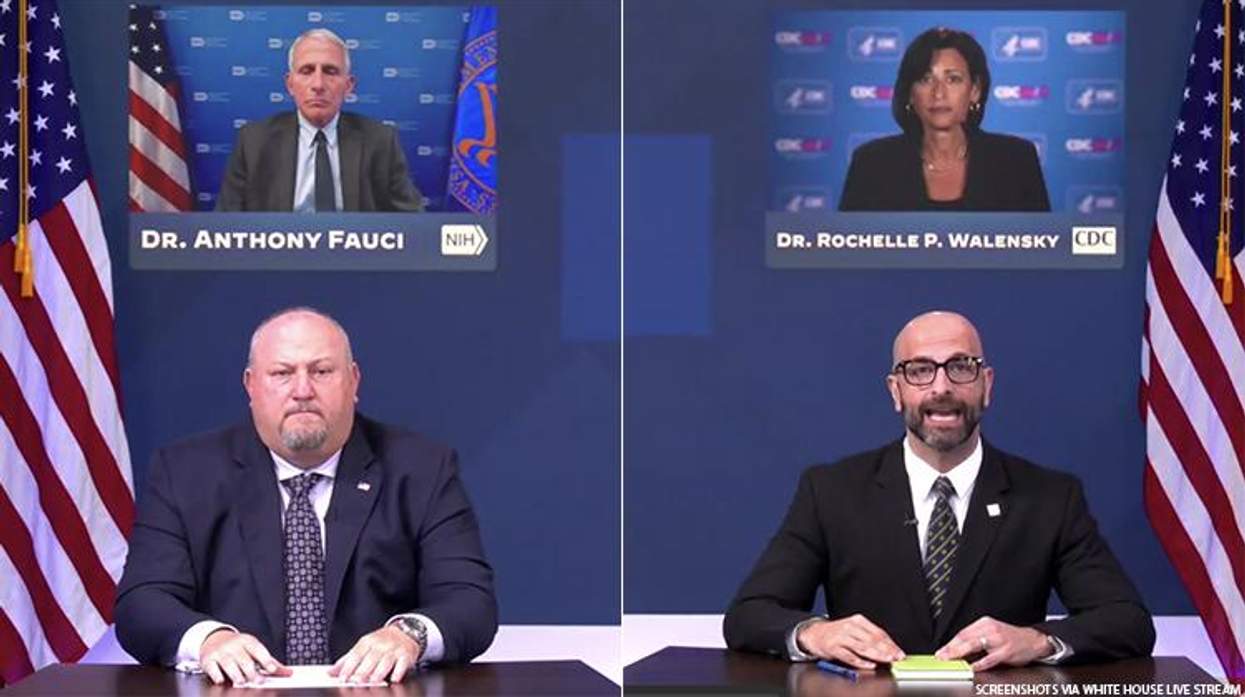Despite continuing drops in cases in the United States, public health officials are concerned that monkeypox continues to spread in communities of color where vaccination rates are low.
The number of new MPV cases has dropped by nearly half since early August, according to White House MPV response coordinator Bob Fenton.
Vaccinations and education efforts contributed to the decrease in new cases, Biden administration officials said during a briefing with the media on Thursday. Nearly 11,000 vaccination doses were administered in a pilot program targeting large Pride events across the country.
"In places like Atlanta, where we've worked closely with the public health community to surge vaccines and information around events like Black Pride, the rate of new cases has steadily declined," Fenton said. "In D.C., the new cases have declined 20 percent, on average, per week since they peaked in mid-July."
As of September 14, there were close to 23,000 MPV cases in the United States, out of more than 59,600 detected worldwide in 103 countries, according to Dr. Rochelle Walensky, director of the Centers for Disease Control and Prevention.
In spite of the decline in new cases, Walensky said, "we have also seen the racial and ethnic makeup of this outbreak evolve" over the past several weeks.
Deputy coordinator for the White House MPV response Dr. Demetre Daskalakis said MPV cases are now concentrated in gay, bisexual, and other men of color who have sex with men causing rises in case counts in communities of color while cases nationally are declining.
"While monkeypox cases were first seen predominantly in non-Hispanic white men, in the last week, among the cases for which we have race and ethnicity data, non-Hispanic Black men represented 38 percent of cases. Latino or Hispanic men represented 25 percent of cases, and non-Hispanic white men represented 26 percent of cases," Walensky said.
So far, Walensky says, over 540,000 doses of MPV vaccine have been administered, with most going to white people.
"Those who are white represent about 47 percent of people who received their first dose. Those who are Hispanic represent about 21 percent, and those who are Black represent about 12 percent," Walensky said, highlighting that this is disproportionately low compared to new cases.
An MPV vaccine equity pilot program has been established by the White House to increase access to vaccines in communities of color that the virus has hardest hit, Daskalakis said.
"It is critical that education, vaccinations, testing, and treatment are equally accessible to all populations, but especially those most affected by ... this outbreak," Walensky said.
According to Dr. Anthony Fauci, director of the U.S. National Institute of Allergy and Infectious Diseases, scientists continue to study MPV's transmission, testing, and vaccines.
"As we implement the interventions that we have, simultaneously we still pursue some unanswered questions," Fauci said.
As he explained, one clinical trial examines the intradermal administration of the Jynneos vaccine. As part of the trial, doctors will test if clinicians can use one vial of vaccine to extract up to ten doses in one go by injecting it into the skin. Each vial can be stretched into five doses currently.
"If, in fact, one to 10 works, that will immediately double the number of doses available on an international scale," he said.
Walensky said the administration is optimistic but still cautioning against taking the foot off the gas.
"We approach this news with cautious optimism," Walensky said at the briefing. "We must continue to aggressively respond with our entire toolkit."
For more information about monkeypox visit the CDC's website here.





































































Charlie Kirk DID say stoning gay people was the 'perfect law' — and these other heinous quotes